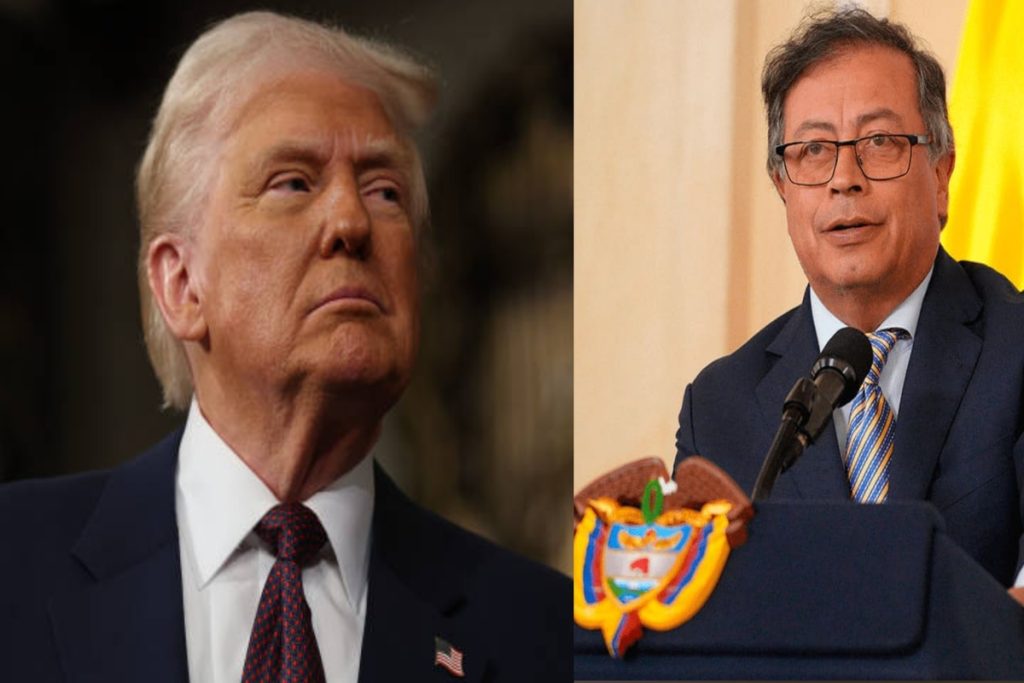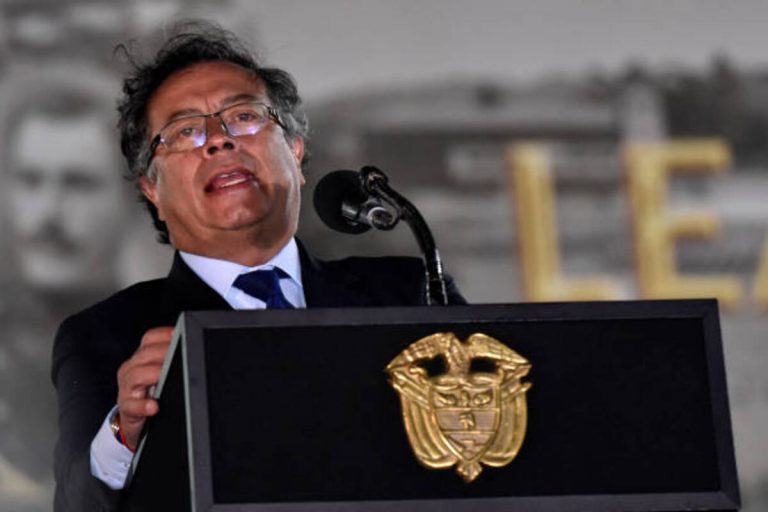
U.S. President Donald Trump addresses a joint session of Congress at the U.S. Capitol on March 4, 2025, in Washington, DC, Win McNamee/Getty Images.
The U.S. announcement follows a separate statement by U.S. Defense Secretary Pete Hegseth that U.S. forces had struck a vessel allegedly linked to the Colombian rebel group National Liberation Army (ELN) in Caribbean waters, claiming the vessel carried “substantial amounts of narcotics.”
U.S. aid to Colombia halted amid drug-war accusations
Trump specifically cited what he described as Colombia’s failure to curb drug production despite “large-scale payments and subsidies from the USA that are nothing more than a long-term rip off of America.”
Colombia had received an estimated US$230 million in U.S. assistance in the year ending Sept. 30, 2025. In past years, amounts had exceeded US$700 million.
“If that is cut, we will see a strategic loss of capability for the Colombian military and police at precisely the moment when they’re confronting the greatest security crisis in Colombia for over a decade,” said a senior regional analyst.
Petro rejects U.S. allegations and asserts sovereignty
In Bogotá, Petro rejected the characterization, saying: “Trying to promote peace in Colombia is not being a drug trafficker.” He described Trump’s accusation as “rude and ignorant toward Colombia” and insisted his government remains “the main enemy of drugs” in the country.
The Colombian Foreign Ministry responded to Trump’s remarks by calling them “a direct threat to national sovereignty by proposing an illegal intervention in Colombian territory.” Defense Minister Pedro Sánchez stated Colombia “has used all its capability and also lost men and women fighting drug trafficking.”
Tensions mount after Caribbean strike
The strike announced by Hegseth occurred in the USSOUTHCOM area of responsibility and reportedly killed three people. No independent verification has been provided of the vessel’s narcotics loads or rebel affiliation.
Petro pointed to a September 16 strike that killed a Colombian fisherman named Alejandro Carranza and claimed it was an act of “murder” by the United States in Colombian waters. He said Carranza had no ties to drug trafficking and his boat was malfunctioning.
“The United States has invaded our national territory, fired a missile to kill a humble fisherman, and destroyed his family, his children,” Petro wrote on social media. “This is Bolívar’s homeland, and they are murdering his children with bombs.”
The bilateral relationship between the U.S. and Colombia, once a linchpin in Washington’s anti-narcotics strategy in the region, now appears at risk. Decades of military cooperation, intelligence-sharing and rural stabilization efforts could be undermined.
Data from the United Nations Office on Drugs and Crime show coca cultivation in Colombia reached record highs last year.
Petro’s government has shifted strategy toward crop substitution, rural development, and negotiating with armed groups rather than the previous heavy-handed eradication approach.
U.S. officials said the new strategy has allowed illegal cultivation to flourish beneath the surface.
The abrupt aid suspension raises questions about how both countries will maintain joint operations against trans-national organized crime.
Diplomatic fallout
Analysts warn that the U.S. move could destabilize not only Colombia but broader Latin-American security architecture. Some suggest the rift may create openings for other regional powers seeking influence.
Latin-American diplomats have expressed concern about escalation and urged the U.S. and Colombia to resume dialogue.
Some lawmakers in Bogotá have called for a review of defense and intelligence cooperation agreements with Washington.
The standoff comes amid other tensions: Colombia’s visa row with the U.S., its protests against U.S. military presence near its border with Venezuela, and Petro’s vocal critiques of U.S. foreign policy.
What’s next for bilateral ties?
Petro has stated he remains open to cooperation on drug-policy through multilateral platforms, but insists any U.S. engagement must be based on respect and Colombian sovereignty. “Colombia’s sovereignty is non-negotiable,” he warned.
Related: Machado’s Nobel Peace Prize spotlights Venezuela’s enduring fight for democracy and freedom
The U.S. administration has not yet clarified which aid streams will be cut, whether military programs or humanitarian and anti-narcotics funds will be paused, and what conditions, if any, exist for restoration.



